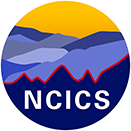
Denis Willett
Phone: +1 828.271.4247
Email: dswillet@ncsu.edu
 Orcid: http://orcid.org/0000-0001-5351-7917
Orcid: http://orcid.org/0000-0001-5351-7917
Biography
Denis joined NCICS in 2021 as a software engineer contributing to the NOAA Open Data Dissemination Program. His work focuses on leveraging cloud technologies for the development of data processing and machine learning pipelines. Prior to NCICS, he developed analytics and machine learning pipelines as faculty at Cornell University and as a data scientist across roles in industry, academia, and the federal government. Denis did his PhD in Entomology and Nematology at University of Florida and his undergraduate and masters work in Earth Systems at Stanford University.
Denis specializes in designing and deploying full-stack, cloud-native data science solutions to intractable technical problems across domains. At NCICS, Denis works on petabyte scale multi-cloud data transfer pipelines, creating pipelines to furnish analytics-ready environmental data, and building production machine learning platforms applying MLOps principles to automate model development and deployment. Previous work has involved expanding the capabilities of scientific instrumentation using machine learning and optimization, building prediction platforms that materials science engineers could use to leverage machine learning for better product design, scaling IOT ingest and analytics pipelines, implementing workforce development plans for data science teams, and strategic positioning planning for bioinformatics companies.
A key component of this and previous work has been technical advocacy in organizations adopting machine learning and cloud technologies. In working with and advising start-ups, Fortune 500 companies, Government Agencies, and Universities, architecting change from the C-Suite to the technical teams has been a priority with efforts focused on education, opportunity, and capacity building. A key part of this is building and leading diverse teams to implement change at the strategic and technical level.
Publications
Filgueiras, C.C., E.J. Shields, B.A. Nault, and D.S. Willett, 2023: Entomopathogenic nematodes for field control of onion maggot (Delia antiqua) and compatibility with seed treatments. Insects, 14 (7), 623. https://doi.org/10.3390/insects14070623
Willett, D.S., J. Brannock, J. Dissen, P. Keown, K. Szura, O.B. Brown, and A. Simonson, 2023: NOAA Open Data Dissemination: Petabyte-scale Earth system data in the cloud. Science Advances, 9 (38), eadh0032. https://doi.org/10.1126/sciadv.adh0032
Filgueiras, C.C., Y. Kim, K.G. Wickings, F. El Borai, L.W. Duncan and D.S. Willett 2022. The Smart Soil Organism Detector: An instrument and machine learning pipeline for soil species identification. Biosensors and Bioelectronics. https://doi.org/10.1016/j.bios.2022.114417
Filgueiras, C.C. and D.S. Willett, 2022: Phenology and Monitoring of the Lesser Chestnut Weevil (Curculio sayi). Insects, 13 (8). http://dx.doi.org/10.3390/insects13080713
Filgueiras, C.C. and D.S. Willett, 2022: The Lesser Chestnut Weevil (Curculio sayi): Damage and Management with Biological Control Using Entomopathogenic Fungi and Entomopathogenic Nematodes. Insects, 13 (12), 1097. http://dx.doi.org/10.3390/insects13121097
Willett, D.S., B. White, T. Augspurger, J. Brannock, J. Dissen, P. Keown, O.B. Brown, and A. Simonson, 2022: Expanding access to open environmental data: advancements and next steps. Bulletin of the American Meteorological Society. http://dx.doi.org/10.1175/bams-d-22-0158.1
Agnello, A.M., D.B. Combs, C.C. Filgueiras D.S. Willett, and A. Mafra-Neto (2021). Reduced Infestation by Xylosandrus germanus (Coleoptera: Curculionidae: Scolytinae) in Apple Trees Treated with Host Plant Defense Compounds. Journal of Economic Entomology, 114(5), 2162-2171. https://doi.org/10.1093/jee/toab153
Barrett, M.R, C.C. Filgueiras and D.S. Willett (2021). Using Cucumis sativus, Acalymma vittatum, Celatoria setosa, and generalist pollinators as a case study for plant–insect interactions. Arthropod-Plant Interactions, 15(5), 637-644. https://doi.org/10.1007/s11829-021-09852-2
Filgueiras, C.C. and D.S. Willett (2021). Non-lethal effects of entomopathogenic nematode infection. Scientific Reports, 11(1), 1-8. https://doi.org/10.1038/s41598-021-96270-2
Pereira, R.V., C.C. Filgueiras, J. Dória, M.F.G. Peñaflor and D.S. Willett (2021). The effects of biostimulants on induced plant defense. Frontiers in Agronomy, 45. https://doi.org/10.3389/fagro.2021.630596
Crandall, S.G., K.M. Gold, M.D.M. Jiménez-Gasco, C.C. Filgueiras, and D.S. Willett (2020). A multi-omics approach to solving problems in plant disease ecology. PloS one, 15(9), https://doi.org/10.1371/journal.pone.023797
Pereira, R.V., C.C. Filgueiras, D.S. Willett, and M.F.G.V. Peñaflor (2020). Sight unseen: Belowground feeding influences the distribution of an aboveground herbivore. Ecosphere, 11(9), e03163. https://doi.org/10.1002/ecs2.3163
Willett, D.S., C.C. Filgueiras, J.P. Nyrop, J. P. and B.A. Nault (2020). Attract and kill: spinosad containing spheres to control onion maggot (Delia antiqua). Pest Management Science, 76(8), 2720-2725. https://doi.org/10.1002/ps.5818
Willett, D.S., C.C. Filgueiras J.P. Nyrop and B.A. Nault (2020). Field monitoring of onion maggot (Delia antiqua) fly through improved trapping. Journal of Applied Entomology, 144(5), 382-387. https://doi.org/10.1111/jen.12740
Willett, D.S., C.C. Filgueiras, N.D. Benda, J. Zhang and K.E. Kenworthy (2020). Sting nematodes modify metabolomic profiles of host plants. Scientific Reports, 10(1), 1-10.https://doi.org/10.1038/s41598-020-59062-8
Stelinski, L.L., D.S. Willett,M.J. Rivera and J.G. Ali (2019). ‘Tuning’communication among four trophic levels of the root biome to facilitate biological control. Biological Control, 131, 49-53. https://doi.org/10.1016/j.biocontrol.2019.01.006
Filgueiras, C.C., A.D. Martins, R.V. Pereira and D.S. Willett (2019). The ecology of salicylic acid signaling: primary, secondary and tertiary effects with applications in agriculture. International journal of molecular sciences, 20(23), 5851. https://doi.org/10.3390/ijms20235851
Willett, D.S., H.T. Alborn, L.L. Stelinski and D.I. Shapiro-Ilan (2018). Risk taking of educated nematodes. Plos one, 13(10), e0205804. https://doi.org/10.1371/journal.pone.0205804
Halbritter, D.A., D.S. Willett, J.M. Gordon, L.L. Stelinski and J.C. Daniels (2018). Behavioral evidence for host transitions in plant, plant parasite, and insect interactions. Environmental entomology, 47(3), 646-653. https://doi.org/10.1093/ee/nvy033
Christensen, S.A., A. Huffaker, J. Sims, C.T. Hunter, A. Block, M.M. Vaughan, D.S. Willett and E.A. Schmelz (2018). Fungal and herbivore elicitation of the novel maize sesquiterpenoid, zealexin A4, is attenuated by elevated CO2. Planta, 247(4), 863-873. https://doi.org/10.1007/s00425-017-2830-5
Christensen, S.A., J. Sims, M.M. Vaughan, C. Hunter, A. Block, D.S. Willett … and E.A. Schmelz (2018). Commercial hybrids and mutant genotypes reveal complex protective roles for inducible terpenoid defenses in maize. Journal of experimental botany, 69(7), 1693-1705. https://doi.org/10.1093/jxb/erx495
Hunter, C.T., J.W. Saunders, M. Magallanes‐Lundback, S.A. Christensen, D.S. Willett, P.S. Stinard … and K.E. Koch (2018). Maize w3 disrupts homogentisate solanesyl transferase (ZmHst) and reveals a plastoquinone‐9 independent path for phytoene desaturation and tocopherol accumulation in kernels. The Plant Journal, 93(5), 799-813. https://doi.org/10.1111/tpj.13821
Willett, D.S., X. Martini and L.L. Stelinski (2018). Chemoecology and Behavior of Parasitic Nematode—Host Interactions: Implications for Management. In Chemical ecology of insects (pp. 91-113). CRC Press.https://doi.org/10.1201/9781351228398
Willett, D.S., C.C. Rering, D.A. Ardura and J.J. Beck (2018). Application of mathematical models and computation in plant metabolomics. In Computational Phytochemistry (pp. 231-254). Elsevier. https://doi.org/10.1016/B978-0-12-812364-5.00008-0
Som, S., D.S. Willett and H.T. Alborn (2017). Dynamics of belowground volatile diffusion and degradation. Rhizosphere, 4, 70-74. https://doi.org/10.1016/j.rhisph.2017.07.004
Filgueiras, C.C., D.S. Willett, R.V. Pereira, P.H.D.S. Sabino, A.M. Junior, M. Pareja and D.W. Dickson (2017). Parameters affecting plant defense pathway mediated recruitment of entomopathogenic nematodes. Biocontrol Science and Technology, 27(7), 833-843. https://doi.org/10.1080/09583157.2017.1349874
Willett, D.S., H.T. Alborn and L.L. Stelinski (2017). Multitrophic effects of below ground parasitoid learning. Scientific Reports, 7(1), 1-10. https://doi.org/10.1038/s41598-017-02193-2
Visser, B., D.S. Willett, J.A. Harvey and H.T. Alborn (2017). Concurrence in the ability for lipid synthesis between life stages in insects. Royal Society Open Science, 4(3), 160815. https://doi.org/10.1098/rsos.160815
Beck, J.J., D.S. Willett, N.E. Mahoney and W.S. Gee (2017). Silo-stored pistachios at varying humidity levels produce distinct volatile biomarkers. Journal of agricultural and food chemistry, 65(3), 551-556.https://doi.org/10.1021/acs.jafc.6b04384
Beck, J.J., D.S. Willett, W.S. Gee, N.E. Mahoney B.S. Higbee (2016). Differentiation of volatile profiles from stockpiled almonds at varying relative humidity levels using benchtop and portable GC-MS. Journal of agricultural and food chemistry, 64(49), 9286-9292. https://doi.org/10.1021/acs.jafc.6b04220
Willett, D.S., George, J., D.S. Willett, L.L. Stelinski and S.L. Lapointe (2016). Machine learning for characterization of insect vector feeding. PLoS computational biology, 12(11), e1005158. https://doi.org/10.1371/journal.pcbi.1005158
Filgueiras, C.C., D.S. Willett, R.V. Pereira, A. Moino, A.M. Junior, M. Pareja and L.W. Duncan (2016). Eliciting maize defense pathways aboveground attracts belowground biocontrol agents. Scientific Reports, 6(1), 1-9. https://doi.org/10.1038/srep36484
Filgueiras, C.C., D.S. Willett, A.M. Junior, M. Pareja, F.E. Borai, D.W. Dickson, … and L.W. Duncan (2016). Stimulation of the salicylic acid pathway aboveground recruits entomopathogenic nematodes below ground. PloS one, 11(5), e0154712. https://doi.org/10.1371/journal.pone.0154712
Martini, X., D.S. Willett, E.H. Kuhns and L.L. Stelinski (2016). Disruption of vector host preference with plant volatiles may reduce spread of insect-transmitted plant pathogens. Journal of chemical ecology, 42(5), 357-367. https://doi.org/10.1007/s10886-016-0695-x
Holladay, B.H., D.S. Willett and L.L. Stelinski (2016). High throughput nematode counting with automated image processing. BioControl, 61(2), 177-183. https://doi.org/10.1007/s10526-015-9703-2
Willett, D.S., H.T. Alborn, L.W. Duncan and L.L. Stelinski (2015). Social networks of educated nematodes. Scientific reports, 5(1), 1-8. https://doi.org/10.1038/srep14388
Willett, D.S., L.L. Stelinski and S.L. Lapointe (2015). Using response surface methods to explore and optimize mating disruption of the leafminer Phyllocnistis citrella (Lepidoptera: Gracillariidae). Frontiers in Ecology and Evolution, 3, 30. https://doi.org/10.3389/fevo.2015.00030
